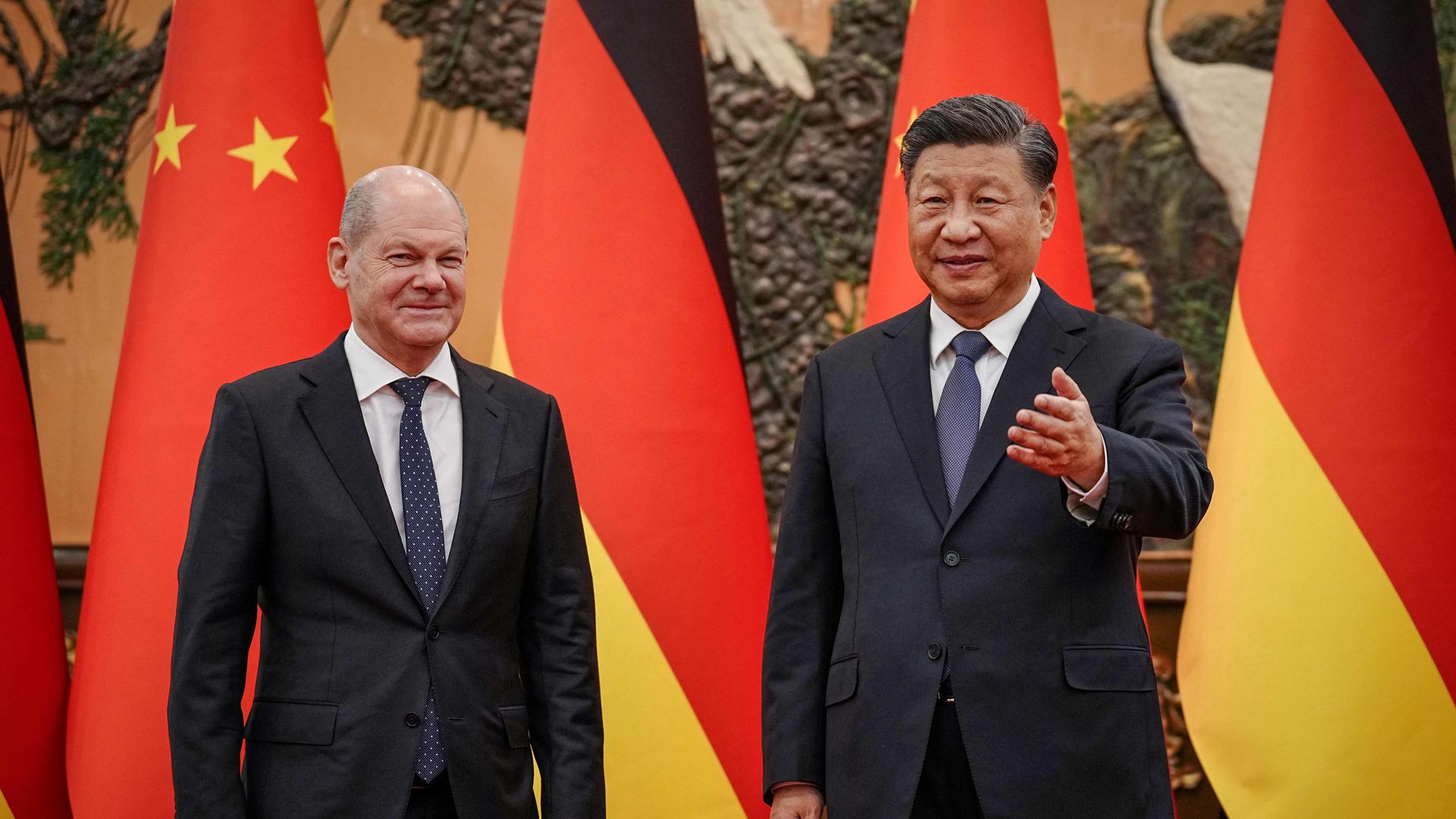Germany's Scholz pressed Xi on war in Ukraine, human rights in China
Add Axios as your preferred source to
see more of our stories on Google.

German Chancellor Olaf Scholz (left) met with Chinese President Xi Jinping in Beijing on Friday. Photo: Kay Nietfeld/Pool/AFP via Getty Images
German Chancellor Olaf Scholz met with Chinese leaders in Beijing on Friday, and raised the war in Ukraine, increasing tensions between Beijing and Taiwan, and human rights abuses in Xinjiang, but focused largely on business with China.
The big picture: Scholz's trip to China, the first among EU leaders since the start of the COVID-19 pandemic, has raised concerns among his coalition partners and other EU members that it could send a confusing signal about how Europe's largest economy plans to deal with Beijing, as the bloc increasingly toughens its stance on China.
- Germany has been hard hit by the war in Ukraine after Russia cut its gas supply to Europe. With a recession looming, analysts say Scholz can't afford to jeopardize Germany's economic relationship with China.
Driving the news: Chinese President Xi Jinping said both leaders "jointly oppose the use or threat of use of nuclear weapons" in Ukraine, according to a readout by the state-run news agency Xinhua.
- During a news conference after meeting with Chinese Premier Li Keqiang, Scholz said he raised the issue of Taiwan, reiterating that "any change in Taiwan's status quo must be peaceful or by mutual consent."
- He also called for protecting human rights in Xinjiang and stressed that UN members, including China, agreed to protect the rights of ethnic minorities.
Details: Scholz was accompanied by a dozen German industrial leaders, including the CEOs of BASF, Siemens, Volkswagen and Deutsche Bank, a source told CNN.
- During the trip, he announced that China and Germany had agreed to let German expatriates in China use the COVID-19 vaccines from German manufacturer BioNTech.
- The regulatory review process for use of their mRNA vaccines in China has been stalled for more than a year, according to SCMP. Scholz said he hoped the BioNTech vaccines could soon be approved for the general public there.
- China also officially signed orders on Friday to buy 140 Airbus planes worth about $17 billion, a state-owned enterprise said in a statement. An Airbus spokesperson said they are all preexisting orders, with some included in an order announced earlier this year, Reuters reported.
- Scholz told reporters he campaigned for a level playing field for European and Chinese companies, including reciprocal market access, per Reuters.
What they're saying: "It’s a very good outcome of [the] trip that Xi recommitted himself against use of nuclear weapons and nuclear threats—that is [a] clear signal toward Putin," Thorsten Benner, director of the Global Public Policy Institute in Berlin, told Axios.
- "Scholz sent the right messages on Russia, Taiwan, and human rights. Again, it['s] whether there will be further meaningful political dialogues on these issues that matters," said Yixiang Xu, China fellow at the American Institute for Contemporary German Studies at Johns Hopkins University.
- However, "the broader message to China conveyed by the way the visit was conducted—business to the fore, and no real attempt to Europeanize the trip—is that securing a very specific cluster of German commercial interests [was] his main priority," said Andrew Small, a senior fellow at the German Marshall Fund.
